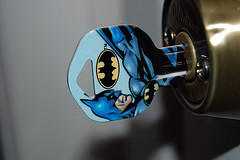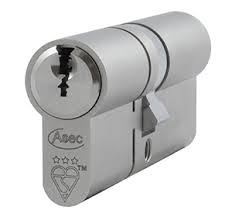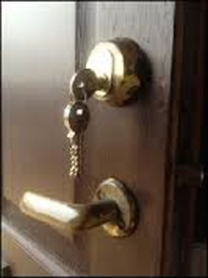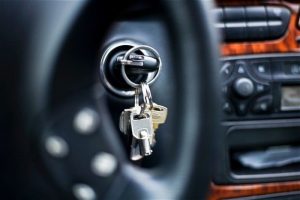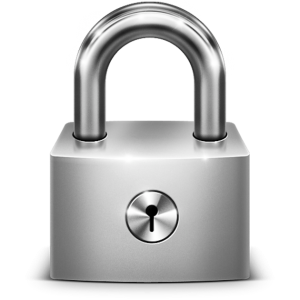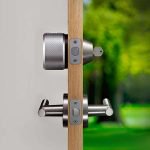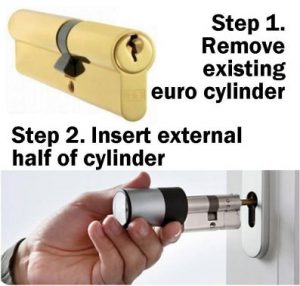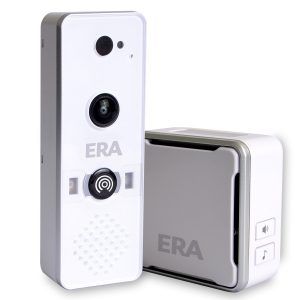Common key & lock mistakes – And How To Avoid Them
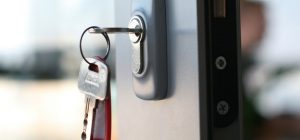
It has been a while since I have produced a blog helping you to avoid needing to call out people like me. So here is a short list of common, avoidable mistakes people make that might just help you not make those same mistakes, hopefully saving you time and money.
Safe Keys
Putting override keys inside your battery operated safe: Safes are great, but if you have a key operated safe, the safe is only as good as the place you hide the key. People are quite obvious in hiding places, so digital safes are a lot better then simple key turn safes. The only problem is that digital safes have master key overrides and the safest place for these keys is in the safe itself. But if you only use your safe rarely there is a good chance you will forget about it, It gets placed in a built in cupboard, covered in clothes and out of sight, out of mind. The batteries start to die and because it is covered in clothes, you don’t hear the warning beep and pretty soon, you have a keypad that you cannot use. Thankfully, you have override keys…. But they are inside the safe. At this point, you can call a domestic locksmith who will gain access by destroying your safe and you will have to pay him for the privilege. You then have to buy a new safe. Potentially £100s because you forgot to change the batteries and left the override keys inside the safe. You can try a safe specialist to come and pick the lock, but the cost might still be £100s because safe specialists are rare (the courses and equipment are expensive) and they don’t get many calls compared to standard locksmiths.
How to avoid disaster? Firstly, take those override keys and trust a family member/good friend to look after them for you. If their house gets broken into and a burglar finds your safe keys, they have no idea what safe they open or where it is. But if they find those keys in your house, they can get into your safe. So, get those keys away from your property. Surprisingly, now your keys are not easily accessible in your safe, you will be more likely to check your batteries! But don’t rely on that. Check how long your safe manufacturer says batteries should last and halve it. Write on the calendar when to change the batteries. Use the old batteries for something else, but keep new batteries in your safe. I love Autumn and Spring because we change our clocks and this gives us a great time to do other things like regular battery changes. Have a list of other maintenance things to do like pre-winter gutter cleaning, etc, and put safe battery changes on that list. This will ensure that if you do have to call someone to open your safe, it will be because something has gone wrong rather than having to explain an expensive memory failure.
Car keys on holiday
I wish I had a sum of money for every time someone called me to say they lost their keys on the beach and the spare car key is 400 miles away on the other side of the country… Oh wait, I do! When you drive somewhere on holiday, take your spare key. When you get to your hotel/air B&B/caravan, etc leave your key somewhere safe at your destination. If you lose your car key, it will be a lot cheaper to get a bus/cab back to your holiday base than it will to call an auto locksmith to come and make a new key on the spot for you. A lot quicker too. Even when you go out on a normal day, if you have someone with you, get them to carry the spare key. If you bring the spare out and leave it in the glove box, you are making life difficult for everyone except car thieves.
Letter boxes
Sticking with cars, most cars are stolen from driveways or outside homes using the keys which have been lifted – either because the front door is left unlocked, or the thief has fished the keys through the letter box. Tools for opening locked doors via the letterbox are getting cheaper, easier to use, and ever more sophisticated. Even if you have an angled guard, there is a tool that goes around it. You might think this is a step back to your Grandma’s house, but a letter basket with closing lid, is a great way to foil the letterbox thief. Better still, seal up the letterbox, and have an external box. If you have room, get one that is big enough for parcels, We get so much delivered these days, a lockable parcel box is a great idea. At the same time, door cams record anyone approaching your door and will have images sent to your phone before they can vandalize it. But I digress..
Copy keys
If you are renting out a holiday home or have multiple carers, etc, get a locksmith to install a new lock, with all new, branded additional keys tried and tested before the lock goes in. Almost every time I get called back to job where the lock has failed, the customer shows me a key that has been copied elsewhere on some poor-quality blank. If you get keys copied and they foul up the lock, that is invalidating any guarantee the locksmith gives you, but if you are using additional keys supplied with the lock at time of installation, you are completely covered. But, if you must get copies made, make sure the original keys are the ones that get used most. I.E. let the guests use them. Yes, they might lose them (less likely if you request a deposit), but if they have poor quality keys and the lock fails and they are locked out waiting for a locksmith who destroys the lock getting in, the cost just multiplies. If you need multiple carers, please get a keysafe. It is better than having to collect keys later and ensures better keys are used.
5 lever locks
Know your terminology; there is a difference between a five lever mortice lock and a multipoint locking system. If you have a wooden door the mortice lock, (often called a ‘Chubb’ lock) is the one that should be 5 levers. If you look at the front plate, It will tell you that it is either 2, 3 5 levers and preferably will display a British Standard kite mark that tells you it has been tested against picking, drilling, sawing and most other forms of attack. If you have a door where you lift the handle and various hooks/bolts/mushrooms, etc. move, this is not a five lever lock. This is a multi-point locking system and your insurance is happy with that, which is bizarre because these systems are only as good as the locking barrel you put your key into and insurance companies are yet to wake up to how easy these can be to bypass. Again, digressing, but please talk to your local locksmith about kite-marked barrels. And if your architect/builder/designer tries to tell you these new multi-point doors without handles are a good idea, ignore them. When there is no handle, all the force of opening the door goes through the key. The leverage ratio is tiny compared doors with nice big handles, and at some point, you will snap your key in your lock.
Complacency
My last one for this blog; Just the other day, I fixed a basic lock on the top half of a stable door. It was not insurance compliant. When I challenged the customer regarding this and told him that his insurance company would not pay out if he were burgled, he replied with one I have heard often: ‘This is Norfolk. Although I know someone in the next village got burgled and lost a lot, it’s highly unlikely I will.’ So why pay for insurance at all? If you are paying for insurance, you owe it to yourself to make sure you are compliant. A second house this week is having three locks replaced after one has stopped working. I pointed out the three locks were all 3 lever and not insurance compliant, so the customer in this case, ordered new locks without delay. If you have an older house, don’t just assume the locks are up to spec. Most decent locksmiths do a free security check and, speaking for myself, when I do security checks I will tell you where advice is necessary and where advice is just personal recommendation.
This article about insurance required locks is quite good.
Should you have any questions regarding the above, please get in touch.
Thanks for reading
Smart Locks again
Is now the right time for a smart lock?
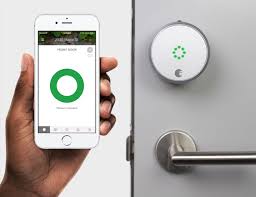
Smart speakers, smart cars, smart fridges, smart thermostats, smart light bulbs, the list goes on and on. In that list are a massive number of smart locks. You can find them all over the internet, from the very cheap to the ultra expensive, basic to very flashy.
But the big problem with almost all of them, is that they will compromise your security, or you will need a whole load of other stuff to make them work. If you have smart locks on a standard wooden door in the UK, the chances are it will be a latch lock. The problem here is that UK insurance companies don’t like latch locks because the latch can be ‘slipped,’ an attack method that can silently take seconds to get into your home with the correct, very cheap equipment. British Standard (BS3621) latches are allowed but the springs are much stronger on these making smart conversions a bad idea as there is a good chance of over-burdening the turning motor inside smart locks. There are solutions for wooden doors, but you should really expect to allow a further £200 minimum for the needed conversions, and it would be much better to consult your local locksmith to ensure the end result will meet your insurance company requirements.
If you have a door with a euro cylinder (the type where you normally lift the handles before locking/unlocking), then insurance requirements are not the issue. The issue is the whole lifting handle before your smart locks can do anything smart. For example, on a standard door, you will have to either not fully lock your door when you leave, (only possible if the outer handle is a dummy handle that does not retract the latch) or you lift handles, use your phone to do what the key would have done and leave. Then, when you come back, you use your phone to unlock, physically push the handles down to disengage the bolts, etc, and then use your phone again to open the latch and have the door swing open because that is what you wanted the smart locks for – to have the door open for you when you are carrying lots of stuff. So here, you gain nothing over a straight forward key. I do know of one company that does a complete smart lock/handle, but it is stupidly expensive, only works with the same brand locking system, and the two I have fitted both failed to set up properly.
So my advice is this. Think long and hard about smart locks. First and foremost, is it going to compromise your security? Secondly, is it actually going to make life easier? Is getting out and firing up your smart phone, searching for the app, searching for the right button within the app, turning it all back off again, etc, actually better than just pulling out your key and turning the lock? Thirdly, ask your local locksmith, and if your locksmith suggests an alternative, ask him/her to explain exactly how their solution meets the above requirements.
Thanks for reading
Previous Smart Lock blog here
Smart Locks – Again! I am having a growing number of people asking me for help with smart locks they are buying for themselves. Many of you are expecting simple installation (as advised by the manufacturers) only to find things a bit more complicated than you might expect. The same can be said for some smart doorbells and supposedly easy installation security equipment like smart CCTV and alarms.
Smart security is still a young technology. Smart locks can decrease your security level and even make your insurance void in many cases. A lot of smart locks are aimed at an American market and their lock requirements are not as stringent as ours.

Smart locks are not always more convenient than key operated locks either. With a key operated lock, you take your key out of your pocket as you approach your door, and you are in without thinking about it. With a smart lock, you might have to carry a tag (easier to break than a key) or you might have to get out your phone, wait ages for the phone to recognise your face/thumbprint/pin code, find the app, open the app and then find the unlock button within the app.
Smart doorbells/doorcams can take loads of footage and send you endless emails of people passing your property but not actually approaching your door, or better still the spider web spun overnight and blowing in the breeze, setting off the sensor. You have to weigh up the options of battery (not good if your door opens onto a busy street) versus mains power (might need long wires or an electrician to wire it in safely).
Your smart CCTV might not be able to tell the difference between a small dog and a human, in which case you are going to be poring through hours of watching what Fido was doing while you were out all day while Fido himself is desperately waiting for you to take him walkies!
And smart alarms can be much better than you thought. Would you like your elderly Mum to just have an alarm for when she goes out to the shop, or would you like a system where if she takes a fall, she can press a button on a neck loop and the alarm system not only calls you, but lets you speak two-way to asses the potential emergency. Do you want your alarm system to incorporate a smoke detector and CO2 detector. Which virtual assistant device do you want it to be compatible with? Do you want it easy to take with you to a new property? Do you want it future proof or easy to do add-ons in order to keep the initial cost down?
There are so many things to think about when buying smart security products and they are rarely as easy to install as their blurb would have you believe. Any decent locksmith/security installer will provide you with free advice and quotations. You should always consult a professional before purchase. Not the person in the shop, but a person who installs and knows the pitfalls.
If you have any questions regarding the above information, please do not hesitate to contact me via email or phone 07846643176
Thanks for reading!
Previous Smart Lock posts: When is a smart lock not so smart
Smart Locks – what you need to know
What I have learned after 10 years as a Locksmith?
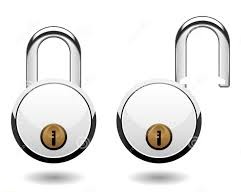
Lessons 10 years as a locksmith has taught me:
1. The multipoint locking mechanism on a double glazed door (or any door where you lift the handles before locking) is NOT a five lever lock. Five levers refers to the internal levers in a mortice lock which sits inside a wooden door.
2. All of those hooks, bolts, mushrooms, and rollers on a lift handle door mean nothing when burglars can attack the lock barrel easily. Having the correct barrel is vitally important and while you might get the insurance company to reimburse your financial loss, they cannot replace the heirloom given to you by Grandma that has enormous sentimental value. If your locking barrels do not have British Standard kite marks, you are practically inviting burglars into your home.
3. Home security is not necessarily about keeping intruders out. We all know they can smash a window. But they do not want to leave through that window carrying your stuff. You are looking to make it as hard as possible for them to leave with their arms full.
4. Look at your neighbour’s house when thinking about home security. Your aim should always be to make them look like an easier target. Crunchy gravel, CCTV, alarms, sensor lights are instant barriers before they even reach your door. Burglars recognise good locks and will go elsewhere. Your local locksmith knows the best brands you can’t buy on the high street.
5. That sneaky place you hide a spare key in the garden is glaringly obvious to the burglar. You are much better off with a quality keysafe.
6. You do not need multiple keys for carers. A keysafe can be much cheaper and easier for all. No more worries when keys go missing.
7. A home safe is not just about deterring criminals. A good one will protect important documents in the event of a fire. But batteries should be changed annually whether the low battery warning beeps or not, and override keys should be kept with a trusted neighbour or family member. Leaving the keys inside the safe is not a clever idea.
8. Taking your car on holiday? Make sure your partner takes the spare key. Nothing worse than calling a locksmith to open your vehicle when you lock the keys in the boot knowing a spare key is at home. Do not leave the spare key in the glove compartment.
9. Very few smart locks conform to BS3621, meaning they are not covered by your insurance.
10. Most lock failures can be avoided. If you notice your lock is getting harder to operate, or you have a special knack for opening the door, then something is wrong and needs addressing. It will be cheaper to sort now and if you don’t, the chances are it will fail when you are stuck in the pouring rain and are desperate to get in because you need to get ready for that important date/job interview/wedding/etc.
11. Hanging keys on a hook in plain sight of your door, or putting them in a dish/on a saucer near the front door is not good. Most luxury cars are stolen from drives after thieves use tools to hook keys through the letterbox. Seal the letter plate on your door and install a post box at the end of your garden. The postie and those who deliver your paper will love you for it.
12. Burglar alarms are not just about burglars; They now come with optional extras like smoke alarms and panic buttons allowing you to call a family member and talk to them through the system if you take a fall and cannot get back up.
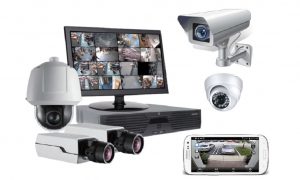
13. Modern CCTV puts you in control. If you post images or film of a crime, the local community might help. A friend knew someone who did this when Christmas decorations were stolen from their garden. The theft was captured by a smart doorcam and posted. Locals soon identified the thief and the stolen items were returned (along with a box of chocolates!).
14. If you need to get copies of keys made, still use the originals as your primary keys. Ask your local key cutter to order genuine branded blanks, even if it costs more and you have to come back. 90% of my recalls for faulty locks end up being poor copies not working properly. When you order a new lock, think about the number of keys you need, and order them at the same time. If you need more than four extra keys, a keysafe can be cheaper.
15. Plastic doors are just as prone to weather conditions as wooden doors. Be aware of direct sunlight and salty sea air. Check regularly for signs of rust. Lubricate your doors every time you change your clocks (spring and autumn). You can find out how by reading my blog on door maintenance.
16. The industry recommends changing your locks every 5 years, especially when keys have been handed to builders, carers, lost by teens, etc. While 5 years might seem a bit too much, adult children might do well to check their older parents’ locks. Many older houses are simply not up to insurance standard. If you cannot find a British standard kite mark on their lock, they are probably paying insurance for nothing as the insurers will not pay out in the event of a burglary.
17. Making a new car key when you have one to copy from is much cheaper than calling out the emergency locksmith when you are stuck in the rain and locked out of your vehicle because you just dropped your car key down a drain. And some cars, like Fords, will require you to make two new keys when all keys are lost as the car will not start without two keys programmed and the process automatically deletes all existing keys.
18. Cloning a car key means any lost/stolen keys will still start your vehicle. Making new keys allows you to ensure only the keys you hold will start the vehicle.
19. Car keys have a huge difference in prices from vehicle to vehicle for many reasons. Some can only be reproduced with genuine branded parts. Others require the removal of the dashboard in order to read a certain computer chip. While most can be done on the day, you might find yourself without the use of your vehicle for some time. Another reason to have a spare key made when convenient rather than leave it to an emergency.
20. Everything comes in all shapes and sizes. Locks are no different. Beware of what you buy in shops or on the internet as they might not be the easy DIY job you were expecting. Always consult a professional locksmith. For example, lots of internet-based car key makers advertise Landrover Discovery keys, but these can only be produced by the manufacturer. In the home, only Chubb branded locks fit exactly into the place where a Chubb lock has been before. Any other brand will need carpentry work and movement of handles (which might expose paintwork that needs touching up that might lead to the painting of the whole door, meaning a quick job becomes a whole day event).
Thanks for reading. Please call us to find out more or ask any questions.
07846643176

All about Smart Locks – What are Smart Locks?
The name ‘Smart locks’ applies to locks that can be opened with technology like your mobile phone and does away with the need for keys. They can be fingerprint activated, voice-activated or have keypads and sensor proximity tags, depending on the lock and how you want it to operate. Smart locks are a relatively new technology with new products appearing all the time.
What are the benefits?
Smart locks can offer controlled access to your home without having to hand out multiple keys, so they are great for people who have carers or home help and find it difficult to get to the door themselves. Teens are fantastic at losing their keys; I know of one unfortunate customer in Aylsham whose daughter got in with a bad crowd and was giving her key to unsavoury friends, who then stole from the property. Smart locks here could have quickly been re-coded to bar anyone who she did not want having independent access. Keypads and proximity tags save you from having to hunt in your bag for your keys. And some more and more are now connecting to home smart networks, which in turn, connect to your mobile phone. Connected to one of these systems with cameras and zone restricted alarms, you can be on holiday in Greece, sat by the pool and when the delivery you have been waiting for arrives, you can let the delivery driver put your parcel in your house, watch them leave and lock the door up behind them.
How secure are they?
This is where you really need your local locksmith. So many smart locks lose security for convenience. Many are latch type locks that are easy to bypass if you have the right tools and know-how. If you change your existing lock for a smart lock then you might be invalidating your insurance. Always consult your genuine local locksmith before making any purchase. They are used to the requirements of insurance companies and will be able to offer the best lock to suit your needs. Also, you might be paying too much for features you do not need. If your smart lock requires you to have a key-operated lock in the same door for security and insurance purposes, then there is no real point in the smart lock. While there are many smart locks available, few will actually be BS3621 rated. You don’t need this rating on UPVC doors (yet) but even here, there is still a mechanical aspect that the lock cannot do. It will not lift the handles that engage all the hooks before locking. That sort of takes all meaning out of the hands-free point.
Are smart locks expensive?
Yes and no. As with everything, there are cheap and expensive ends of the scale. This is another reason to talk to your local locksmith. We know brands and their quality. We do the research so you don’t have to. We go to the nerdy lock conventions and get to see the items in action before we buy them.
In summary, smart locks are a great idea for certain situations but often lose security for convenience and often that convenience can be misleading. For example, with a normal lock, you approach the door and with one hand, take your keys from your pocket, insert into the keyhole, turn and you are unlocked. With some ‘faster’ smart locks, you approach the door and take out your smartphone. Holding your phone in one hand, you turn it on with the other, insert your security code, find the app, open the app, find the button that unlocks the door and eventually you are in. If you are trying to do this while laden with shopping, the process just got longer. There are better products out there, but you will need your locksmith to help you through the minefield. However, if you are really into your gadgets, then a smart lock is a great one that you will use every day. Paired with Alexa or other smart devices and part of a home network that includes CCTV, alarm and a decent door cam, smart locks show potential intruders that you mean business (if you get the right one).
If you have any questions about smart locks or any home security issue, please do not hesitate to contact me via any of the methods on my contacts page.
Thanks for reading.
AC Locksmiths Norfolk
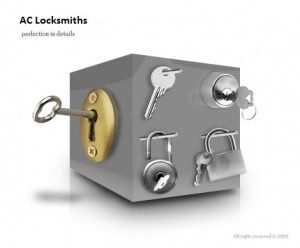
Locksmiths most commonly asked questions:
Do Skeleton Keys open all locks?
A key to open all locks is only found in magical fantasy. Even us locksmiths need many different lock picks for the different types of locks we come across, so that hero you see on the TV who carries a few needle-like implements in a little pouch, is only making a small representation of what is really needed, and even then, the speed shown would be for very easy, smooth running locks. That being said, each lock type and brand have a finite number of combinations and if you were to try your house key in enough other houses using the same brans and lock type, you will find houses that you can enter with ease. This is an important point when moving into a newly built home on a large estate. The average new house comes with front, back and patio doors. A 500 house estate means around 1500 locks and the developer will use the same brand and lock type on every one of them. Locking doors to garages and sheds could easily make that 2,500. With that many locks, the statistics say there is an extremely good chance someone else’s key on that estate will fit your lock. So, it is very good advice to change your locks, even on a new home, preferably to a different brand to all the rest.
How will the locksmith gain entry?
There are many ways to bypass a lock. You might even want to see for yourself how it is done. Please do not be offended if the locksmith asks you to step away while he works. Some techniques require a learned feel or special technique. Watching the locksmith work can show people how to get into other people’s homes which is not really a morally good thing. Also, watching the locksmith and trying to replicate what they do next time, might lead to bigger complications and an even bigger bill. Besides, if they are given room to concentrate, they can work faster, getting you in quicker.
Why do locksmiths charge so much?
Hopefully, you only see the locksmith for a very short time. What you don’t see are the endless hours driving between jobs. It is very that two people have an emergency next door to each other and usually the case that a locksmith will criss-cross his patch several times in the same day. In cities, the patch may be small but the traffic will be horrendous and rurally, the patch is much bigger due to lack of population density. On top of that, locksmiths need to keep up with the latest changes in law and products, keep on top of their own accounts, maintain their vehicles, replace tools and nowadays, write blogs! There might be additional training programs. This doesn’t just mean the cost of the course itself, but losing however many days work the course entails. Then there is the time spent ordering parts online or time spent in shops purchasing tools, etc. As a cost example, I have to do two jobs a month just to pay for the chisels and drill bits I will need to replace each and every month. So you can see, there is a lot more cost involved than just the time the locksmith spends with you.
If I have my locks changed, how many keys do I get and where do I get more cut?
Most locks come with two or three keys. If you are booking a lock change for a future date, it is wise to get the number of keys you require ordered with the lock. This way, you can guarantee the keys will have been tested in that lock before they get to you. Some locksmiths can cut keys on site which again is a sure way to see they are tested. The alternative is to go to your local engraver/cobbler who will usually provide key cutting services. But here you are chancing your luck because you will have to wait until you get home to try the keys and if they don’t work, you have to go all the way back to the shop again, still, with no guarantee, it won’t happen again. Chances are, key cutting outlets will not use genuine branded blanks either. You might think chain key cutters would be the best option but these have high staff turnover and very basic training. Every time I have been recalled to a faulty lock that I have installed, the problem has been poorly cut keys from chain stores. If getting keys cut, always ask for genuine branded blanks that should show the same brand name on the head of the key as the one you getting copied. Many will tell you the non-brands are just as good, but this just isn’t so. Demand genuine. Leave a deposit and pick up the keys a couple of days later if needed. This could save you a much more pricey second visit from the locksmith. Never use an already copied key to cut another. If you have lost your original keys, get a new lock an order the appropriate number of keys with it.
What is British Standard and why do I need it?
British Standard or BS3621 is a rating for the effectiveness of locks against certain attacks that include; picking, drilling, slipping, bumping and a whole host of other terms you might not be familiar with. Your home insurance will demand your locks on wooden doors to be up to this standard. While it is not an insurance requirement for doors where you have to lift the handles before locking, every locksmith will correctly tell you that you should a BS3621 lock on these doors as well because, without them, the intruder can enter your home in under 60 seconds with no power tools. Even if the intruder does get in through a BS3621 rated lock, your insurance might not pay out if another door on your house is not up to standard, so check now that all your final exit doors have a BS3621 kitemark.
What is a fair price for my locksmith?
This is a bit of a minefield. The nationals will charge more because they have to make their profits, pay office staff and pay the locksmith they sub-contract to do the work, but they will do the work that saves you ringing several people in an emergency, and many local locksmiths rely on the work that comes in from the nationals while they get themselves established. That aside, locksmiths seem to have a standard rate, evening rate and through the night rate, plus weekend rates and bank holiday rates. If possible, you should check the locksmith’s website to see if they have any indication of what you might expect to pay. Personally, I have one rate no matter what time of day of what day of the week it might happen to be. But if you have the time, you should ring two or three locksmiths. The cheapest one will probably be the least experienced or hiding costs until he gets there. The most expensive one will be overpricing and you should usually go with the one in the middle, especially if these prices are wildly different. Be sure to get a quote on the phone, a revised quote once the locksmith has visually assessed the job, and find out if the price includes VAT. You also want the locksmith to inform you if anything happens that will cause a price increase. The locksmith should tell you about any potential price increase reasons before continuation.
How long does it take the locksmith to open my locked door?
This can be seconds to a very long time. Locks are often worn, rusty or might have something causing a jamb. The locksmith is wary of damaging your door so they will take time and care to make sure the job is done quickly with the least amount of damage. A simple latch lock might be opened in seconds, but a seized multi-point locking system can be very difficult to open without causing damage to the door. Rest assured, the locksmith wants to get you in just as quickly as you want to be in yourself. With car locks, the picks require the feel of springs inside the lock itself. If the lock is old, this feel can be difficult, or if the internal workings are too loose, the individual parts can keep passing beyond their opening point, making a three-minute job last an age. Patience is your only requirement.
Why do I need to pay on the day?
You are paying for a service and often new products. Most locksmiths are sole traders and unable to run back accounts like big companies. The costs of materials and van/tool maintenance keep things tight all the time. We just cannot add tracking who owes what where and when all the time in addition to everything else. Now that doesn’t mean we are heartless and unsympathetic to those who just don’t have the means to pay in an emergency situation. If you genuinely cannot pay on the day, make the locksmith aware before work commences and something can usually be worked out, but be aware, should you not pay the locksmith within an agreed time, he may well charge late payment fees or you might just find yourself paying more should you need that locksmith in another emergency.
if you think of anything else you would like to know please contact us:
AC Locksmiths Norfolk
07846643176



